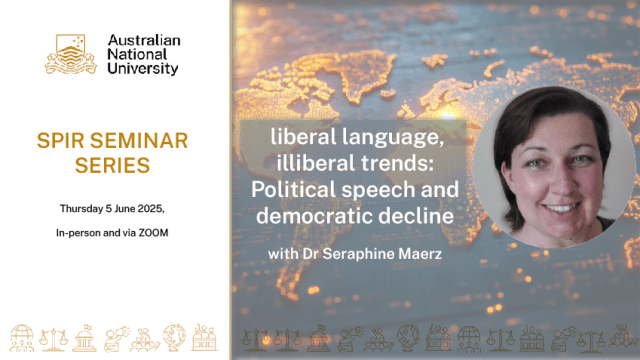Illiberal language, illiberal trends: Political speech and democratic decline

Political leaders signal their commitment to democratic or authoritarian values through public speeches. Such signals can constitute a breach of democratic norms and indicate intent to undermine democratic institutions.
By listening to what leaders say, we are able to detect a crisis of democracy and its imminent risk of decline. We develop an Illiberal Speech Index (ISI) to capture the language by leading representatives of political regimes across the globe. Utilising a machine learning approach, we fine-tune BERT models to score 38,557 speeches by 452 political leaders representing over 400 administrations in 123 countries between 1973 and 2024.
The scores place leaders on an illiberal-liberal scale. Using matching methods and a difference-indifferences estimator, we illustrate that illiberal public discourse provides an early-warning signal of impending democratic decline. Our analysis opens up a new research agenda on the role of public rhetoric in the study of political regimes.
Seraphine Maerz is a Lecturer at the University of Melbourne and researches the dynamics of democracy, democratic decline, and authoritarian resurgence, with a focus on how political leaders' rhetoric and policies shape democratic institutions. Seraphine is the co-founder of QuantLab a new network bringing together people interested in quantitative and computational methods which is based on the principle of knowledge sharing. She also offers online workshops on how to use AI tools in research and fine-tune open-source LLMs. Seraphine is committed to advancing the accessibility of quantitative methods and computational skills in the social sciences. For more information and regular updates, visit her homepage at https://seraphinem.github.io/.
This event is originally published on the School of Politics & International Relations website.
Location
RSSS Room 3.72 or Online via Zoom
Speaker
- Dr Seraphine Maerz (University of Melbourne)
Contact
- Richard Frank